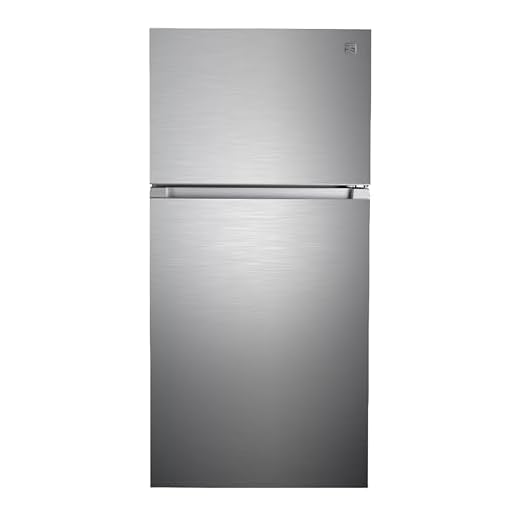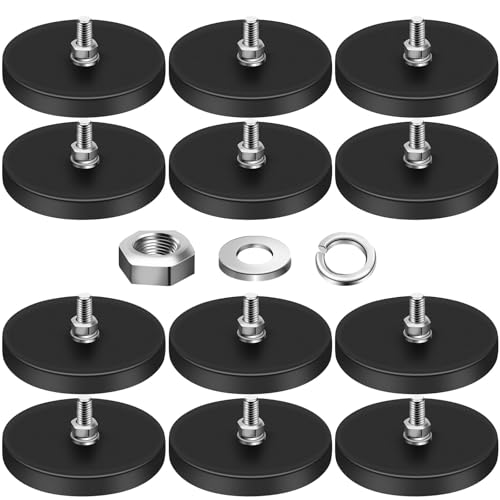



Many people use magnets to decorate their refrigerators or keep important notes and papers in sight. However, there is a common concern about whether magnets can cause any damage to stainless steel refrigerators. Stainless steel appliances, including refrigerators, have become increasingly popular in modern kitchens due to their sleek and modern look. Therefore, it is essential to understand the potential effects of magnets on stainless steel surfaces.
Stainless steel is known for its resistance to rust and corrosion. It is a durable material that can withstand a variety of household conditions. However, magnets can cause minor damage or leave marks on stainless steel surfaces. These marks are typically not permanent and can be removed with proper cleaning methods.
When magnets are attached to stainless steel refrigerators, the magnetic field can pull and attract metallic objects, such as paperclips or metal utensils. This can lead to scratches or blemishes on the stainless steel surface. Additionally, if the magnet is moved or rubbed against the surface, it can leave behind residue or adhesive marks. However, these issues can usually be resolved with gentle cleaning using mild soap and water.
To mitigate the risk of potential damage to your stainless steel refrigerator, consider using magnets with protective backing or a covering. This can help prevent direct contact between the magnet and the stainless steel surface, reducing the chances of scratches or marks. Additionally, regularly cleaning your refrigerator with appropriate stainless steel cleaners can help maintain its pristine appearance and minimize the visibility of any potential marks or residue left by magnets.
In conclusion, while magnets can cause minor damage or leave marks on stainless steel refrigerators, the risks can be minimized and addressed with proper cleaning and maintenance. By taking precautions and using protective measures, you can enjoy the benefits of decorating or organizing your refrigerator with magnets without compromising its sleek and modern appearance.
Understanding Magnetism
Magnetism is a natural phenomenon that occurs when certain materials, such as iron or nickel, align their electrons in a specific way to create a magnetic field. This magnetic field can cause attraction or repulsion between objects, and is the force responsible for the behavior of magnets.
Magnets have two poles, a north pole and a south pole, which are opposite and attract each other. When two magnets are brought together, their opposite poles will attract each other, while their like poles will repel each other.
Stainless steel is a type of metal that is resistant to staining, corrosion, and rusting, making it a popular choice for kitchen appliances like refrigerators. However, stainless steel is not magnetic itself, meaning it does not attract or repel magnets.
When magnets are placed on stainless steel, they do not damage the surface or affect its properties. The magnets will simply stick to the surface due to the magnetic force between the magnet and any other magnetic materials that may be present on the stainless steel surface, such as iron or nickel. However, if the magnets have a strong adhesive backing, they may leave behind residue when removed.
It is important to note that while magnets do not damage stainless steel refrigerators, they may potentially affect electronic devices that are sensitive to magnetic fields, such as pacemakers or credit cards with magnetic strips. It is advisable to keep magnets away from these devices to prevent any unwanted effects.
In conclusion, magnets do not damage stainless steel refrigerators, as stainless steel is not magnetic itself. However, caution should be exercised when using magnets near sensitive electronic devices.
Stainless Steel Properties
Stainless steel is a versatile and durable material that is commonly used in various applications, including refrigerator construction. It offers a range of properties that make it an ideal choice for this purpose.
Corrosion Resistance
One of the main advantages of stainless steel is its excellent corrosion resistance. It is made using a mixture of chromium, nickel, and other elements that form a protective layer on the surface, preventing rust and corrosion. This makes stainless steel refrigerators resistant to stains, water spots, and other types of damage, ensuring their longevity and maintaining their aesthetic appeal.
Strength and Durability
Stainless steel is known for its high strength and durability. It is a strong material that can withstand heavy loads and resist impact and pressure. This makes it suitable for use in refrigerators, which are often subjected to frequent opening and closing, as well as to the weight of stored items. Stainless steel refrigerators are less prone to dents, scratches, and other forms of damage, ensuring that they continue to look and function well for a long time.
Heat Resistance
In addition to its corrosion resistance and strength, stainless steel also possesses excellent heat resistance. It can withstand high temperatures without warping or losing its structural integrity. This is particularly important for refrigerators, as they can generate heat during the cooling process. Stainless steel refrigerators can effectively dissipate heat and maintain their performance even in hot environments.
In conclusion, stainless steel is a preferred material for refrigerator construction due to its corrosion resistance, strength, durability, and heat resistance. It provides an aesthetically pleasing and long-lasting solution for storing and preserving food.
Potential Damage to Stainless Steel
While magnets may not scratch the surface of a stainless steel refrigerator, they can still cause potential damage.
The most common issue is that magnets can leave behind marks or residue on the surface of the stainless steel. This can happen if the magnet is left in the same spot for an extended period of time or if the surface is not properly cleaned after removing the magnet. These marks can be difficult to remove and may require special cleaning solutions or techniques.
In addition, magnets can interfere with the natural protective layer on the stainless steel surface. Stainless steel has a passive layer of chromium oxide that protects it from corrosion and rust. Magnets can disrupt this layer, making the stainless steel more susceptible to damage and staining. It is important to regularly clean and maintain the stainless steel surface to ensure that the protective layer is not compromised.
Another potential issue is that magnets can attract and hold onto dirt, dust, and other contaminants. This can create a buildup around the magnet, which can be difficult to clean and may eventually lead to corrosion or other forms of damage. Regularly inspecting and cleaning the stainless steel surface can help prevent this buildup and maintain its appearance and durability.
To minimize the potential damage from magnets, it is recommended to use magnetic accessories specifically designed for stainless steel surfaces. These accessories are often equipped with a protective coating or backing to prevent direct contact with the stainless steel, reducing the risk of damage. Additionally, always clean the stainless steel surface thoroughly after removing any magnets to ensure that no marks or residue are left behind.
By understanding and taking precautions to prevent potential damage, stainless steel refrigerators can remain both functional and aesthetically pleasing for years to come.
Preventing Damage
While it is generally safe to use magnets on stainless steel refrigerators, there are some precautions you can take to prevent any potential damage:
1. Use Magnets with Protective Coatings:
When choosing magnets to use on your stainless steel refrigerator, opt for ones that have a protective coating. This coating can help prevent any scratches or marks on the surface of your refrigerator.
2. Avoid Using Strong Magnets:
Using magnets with excessive strength can increase the likelihood of damaging your stainless steel refrigerator. Strong magnets may cause the surface to become scratched or dented. Stick to magnets with a moderate level of magnetic strength to minimize the risk of damage.
Additionally, be cautious when positioning magnets on your refrigerator. Avoid placing them directly on any sensitive areas, such as control panels or displays, that may be more prone to damage.
By following these preventive measures, you can enjoy using magnets on your stainless steel refrigerator without worrying about causing any unwanted damage.
FAQ
Will magnets damage the surface of a stainless steel refrigerator?
No, magnets will not damage the surface of a stainless steel refrigerator. Stainless steel is not magnetic, so magnets will not adhere to the surface or cause any damage.
Is it safe to put magnets on a stainless steel refrigerator?
Yes, it is safe to put magnets on a stainless steel refrigerator. Magnets do not have any adverse effects on the surface of stainless steel, so you can use them to hang or display items without causing any damage.
Can magnets leave marks or scratches on a stainless steel refrigerator?
No, magnets will not leave marks or scratches on a stainless steel refrigerator. The surface of stainless steel is resistant to these types of damage, so you can use magnets without worrying about any negative effects.









